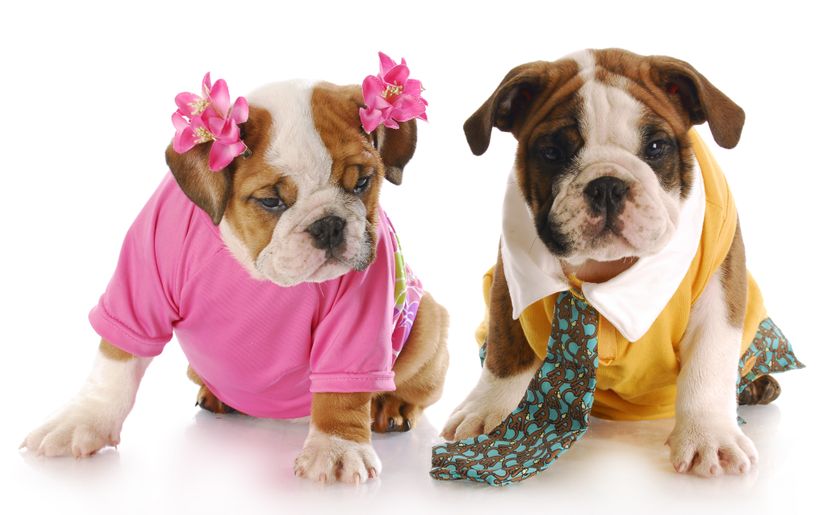
Are the psychophysical differences between males and females criteria that help the future owner when choosing a dog?
There are several very important things to think about before getting a pet dog. You want a dog's specific behavior, size, age, grooming needs and activity level. But what about the gender of the pet? Do you want a male or a female, and does the sex of the animal even matter to you? What do veterinarians say about this issue?
Experts in animal health and behavior claim that many dogs have mostly conformed to gender stereotypes, but there are some that have not. And other offended opinions are often "debunked," such as those that males are more benign than females or that males prefer to roam, writes Rd.
What do research and anecdotes say about the sexes of dogs, their difference and the important features that ultimately make future owners decide on a female or a male?
Does the gender of the dog matter?
The gender of the future pet is important, but not decisive, say experts. Scientific research has found significant differences between males and females, but such results become almost meaningless if you are interested in the characteristics of a particular dog. For example, spaying females sometimes causes increased aggression, but a spayed female puppy you see at the shelter may be the cutest animal ever and you must adopt her!
The bottom line is that a dog's characteristics are much more important than general information about its sex. The quality of time you spend with the dog will be the best way to find out if its character suits you.
Characteristic differences of male and female dogs
Sex hormones can play a certain role in shaping a dog's character and behavior: if sterilization or castration was performed earlier, regardless of gender, the dog will be calmer compared to pets of both sexes who struggle with sexual urges.

Male character
Males who are not neutered have high levels of the hormone testosterone, and it is precisely this hormone that is associated with problematic behaviors that are most commonly seen in males. By the way, testosterone also has good roles in a man's life.
Males like to roam: the wild ancestors of dogs were often on the move, and males had to travel long distances to find a female and defend their territory. The desire to go out and explore is often most evident in unneutered males and can lead to problems such as getting into fights and injuries. Males can also be aggressive: in search of a mate, they often fight other males, and such aggressive tendencies can spill over into other segments of their lives, including interactions with people. Several studies have shown that aggression is more common in males than in females.
Jumping is a typical phenomenon in males, but it is not always a mandatory introduction to the sexual act. It is often just a way of communicating or attracting attention, or a sign of emotional excitement. However, males tend to often jump on other dogs, people, and even inanimate objects.
And territoriality is more expressive in males, who urinate on objects in the environment to mark their territory. That's why the future owner of a male dog should be ready to stop on dozens of places that his pet wants to mark. This habit slows down and frustrates the owner, especially if the dog exercises it indoors.
Males are often more friendly than females, but there is no research to prove this. Many dog owners claim that their males are more active and playful than females.
Character of females
The hormones estrogen, progesterone and oxytocin are the most important and expressed during the reproductive period and play a major role in the formation of some traits and behaviors typical of females.
Female dogs are calmer than males
Although there have been no scientific studies on the subject, female dogs are often said to be calmer than males. Perhaps raising puppies requires a certain level of calmness that is not needed by males who are not involved in raising their offspring.
Females are easier to train
A 2017 study found that female dogs scored higher than males in obedience and training classes.
Unsterilized females are more caring towards their owner
After the female goes through a cycle in which she does not remain fertile, she can behave as if she is about to have offspring: she may make a litter and carry soft toys in her teeth, or even show empathy for her owner when he is in a bad mood.
Loyalty is a trait more often associated with females
Both males and females show loyalty to their owner, but females have higher levels of oxytocin, which promotes bonding between the mother and her offspring, which explains the strong loyalty to the owner.


